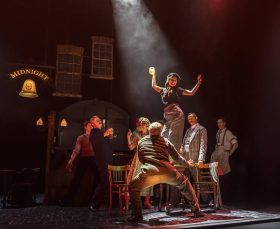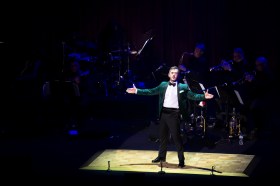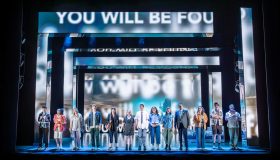Do powerful new measures introduced into British law with the Terrorism Act 2006, ostensibly to help the police and law enforcement agencies tackle the threat of terrorism, pose a threat to what many see as the future of the arts and freedom of speech in the UK?
Many are wondering.
Recently, British musical acts Gomez and Coldcut, two of the top acts at Budapest’s Sziget music festival, were prompted to cancel their performances at the event due to a major terror alert in Britain.
So too, the prestigious New York based Orchestra of St Luke’s were forced to call off it’s scheduled performances at the Edinburgh Festival and at the BBC Proms after it was unable to reach Britain due to new rules put in place banning the carrying of hand luggage onto flights.
Under the aformentioned Terrorism Act 2006, it is now a criminal offence to “encourage terrorism, including to glorify terrorism”” and to “disseminate terrorist publications, including by extremist bookshops and through internet activity”.
So how is this affecting the work of artists?
Graham Coulter-Smith, Southampton University academic and editor of the controversial publication Art In The Age Of Terrorism, sketches the big picture. “The topic of art in the age of terrorism is not an easy one and there are no definitive answers. What is important, however, is that difficult issues are discussed in spite of the air of unease generated by the so-called ‘war on terror’.”
Judging by this year’s Edinburgh Fringe Festival, that discussion is alive and well.
Prior to the opening of the 2005 festival, director Paul Gudgin observed: “Everyone wants to talk about the war on terror. This is the most politicised Fringe since the seventies”.
The 2006 programme upped the ante yet again, with a politically saturated lineup focusing on the effect of terrorist activities across the globe, and the new anti-terror laws themselves. One of the most popular productions, Black Watch, drew more than its fair share of controversy. An unauthorised biography of the famous Scottish regiment by Gregory Burke, the production was hailed a searing piece of verbatim theatre based on interviews with former soldiers who served in Iraq.
The plays director, John Tiffany, offered one explaination. “I think people are very angry,” he said. “You can go on marches, you can vote, but using theater to address the things that are going on in the world — I think that’s very exciting.”
Yet the production has received tremendous critical acclaim and public support, packing houses and winning major awards. Hardly the embrace a censorial climate would invoke.
Other popular, and equally controversial works presented during the festival included Jesus: The Guantanamo Years, in which Christ falls foul of the war on terror; We Smell Like America, featuring a California improv troupe and their diagnosis of a nation’s ills; and What I Heard About Iraq, a compliation of politicians’ statements and grim statistics about the war. Yet the authorities were more interested in policing the new smoking ban than they were dragging these artists off the stage.
But there have been uncomfortable close calls that do give pause.
Earlier this year, Welsh playwright Dic Edwards ran afoul of the new terror legislation when it appeared as though he could find himself facing prosecution under ‘glorification of terrorism’ charges. At issue, his opera Manifest Destiny, which looked at the story of a Palestinian suicide bomber torn between her duty to the Palestinian cause and her love for a London-based Jewish man.
At the time of the controversy, Edwards declared that that “the law doesn’t define terrorism. One man’s terrorist is another man’s freedom fighter.”
And radical Muslim musician Aki Nawaz, former drummer in the Southern Death Cult, found himself in hot water over music that mentions the immorality of the west, suicide bombers and Osama bin Laden.
Attempts were made to halt the release of his album, but Nawaz was unswerving, telling critics: “I have a right to push the boundaries as much as anyone else has, whether it’s Ken Loach or Harold Pinter or George Galloway or Neil Young or the Sex Pistols.”
Only time will tell just how much the UK arts scene will be altered – for better or worse – by the current political and social changes taking place.
Perhaps the final word for the moment should go to National Campaign For The Arts director Victoria Todd.
“Now more than ever we need the arts to explore issues thrown up by cultures and religions, yet proponents of censorship are becoming emboldened.”
“The Government needs to understand that the Terrorism Bill will create a climate where artists no longer feel able to challenge, question or provoke. Fear of prosecution and increased action by pressure groups will discourage writers and actors from opening up the kind of debates that promote understanding in a tolerant society.”




